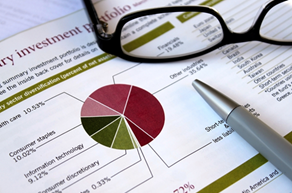6 Tips for Preparing a Business Budget
This might be news to your ears, but airline pilots mostly fly an aircraft using only instruments – never really looking out the cockpit window for where to go.
A well prepared business budget serves the same purpose for an enterprise. It helps the entrepreneur navigate by the numbers.
[newsletter1][/newsletter1]
(Don’t Miss: Do You Really Have What It Takes to Run a Successful Small Business?)
And in 99% of the cases, if the numbers you prepare are good, then the chances are that your business will take off, fly and land successfully! Here are 6 tips for you to keep in mind when preparing your business budget:
- Synchronize business budget and plan: Your budget should be prepared in lock-step with your business plan. Too often the temptation to "make the numbers look good" takes over, and you'll end up preparing a budget that doesn't support your business plan. Avoid that trap at all costs!
(See Also: Selling Your Home? 6 Home Improvements to Help You Sell Quickly)
- Start off at 10,000 ft: It's best if you start building your budget at a very high level. Factor in all the "big ticket" items like capital costs, salaries and benefits, rent, taxes and utilities, sales projections and other large recurring revenue items first. Often, this will see you through 80% of your budget process.
(Don’t Miss: 7 Best Locations for Your Honeymoon)
- Refine to a limit: Once you have the big picture budgeted, it's time to refine and break down those numbers into individual components. For instance, a $100,000 "IT Equipment Cost" item should be refined into "$10,000 for Computers", "$35,000 for Air conditioning and ventilation" and so on. However, resist the temptation to budget for every Mouse, Keyboard and Monitor. You'll be overwhelmed!
(Small Business 101: 6 Easy Ways to Boost Creativity at Work and at Home (Creative Thinking))
- Build budgets realistically: A budget is meant to guide you successfully through real-life situations, and not hypothetical ones. While preparing your budget, use scenarios that are as close to real-life as possible. For instance, use published inflation trends, interest rate forecasts and realistic currency exchange rates as opposed hypotheticals.
(Investing 101: 6 Tips to Investing In Homes | Real Estate Investment)
- Multiple views: The best use of a budget is to see how your business is doing through multiple modes of the business cycle. You should therefore prepare a budget that allows you the flexibility to quickly change business strategy depending on each business cycle. If there is a boom, slump or slack, the budget should be able to help you navigate through each situation.
(See Also: 6 Best Jobs for Stay at Home Mom, Dad | Work from Home Options for Parents)
- Validate your budget: Once you have it all prepared, have a professional (or at least another set of knowledgeable eyes) review it for soundness. Quite often, bankers and insurance companies will offer their services to review your business plan and your budget as part of a loan or insurance offering. Take full advantage of such services if possible!
Long live the Budget!
Don't be mistaken into thinking that once you prepare your budget, all it ever needs is a few annual updates. It is thinking like that which will doom your business to failure even before you see your first profits roll in.
[newsletter2][/newsletter2]
Too many entrepreneurs fail to realize that the budget is a living document. While it is just one (albeit an important one!) of the tools in your toolbox to help you navigate your business to success, it is also a growing, evolving ever changing ally that needs constant nutrition and nourishment.
Here are 6 Easy Ways You can Save Money in 2014
The nourishment for a budget comes in the form of frequent updates and changes.
Quite often, having no budget at all might be preferred to having a budget document that's stale and outdated!





